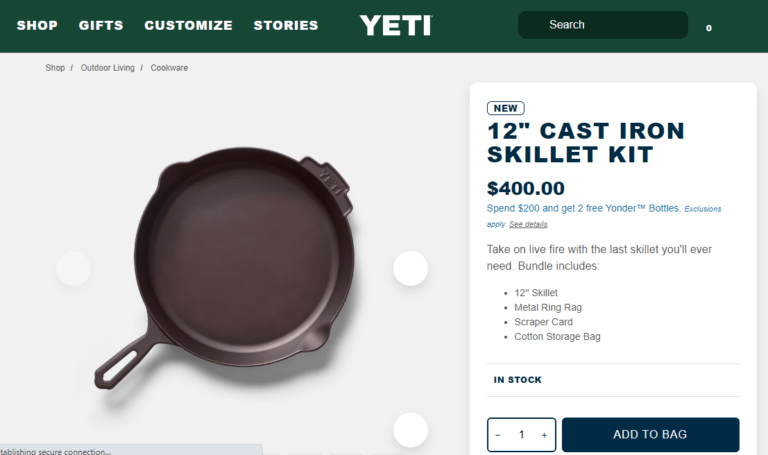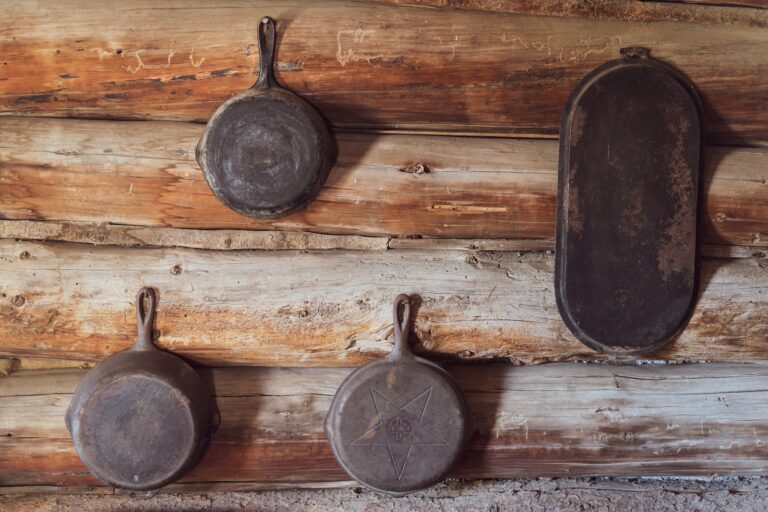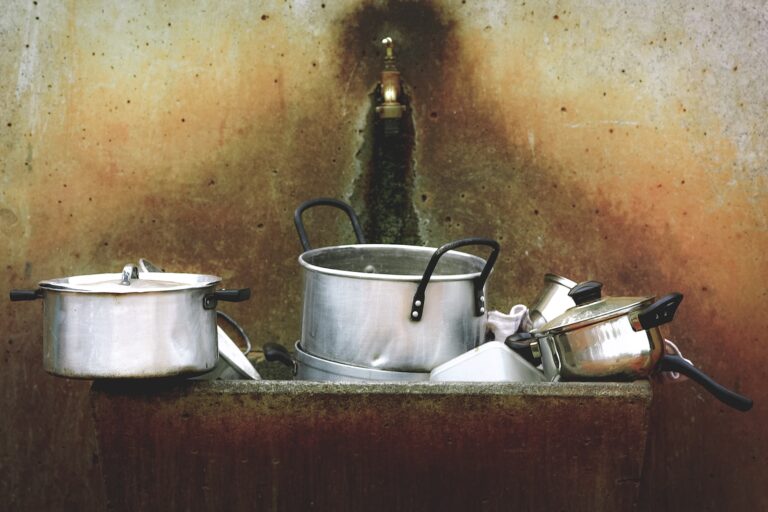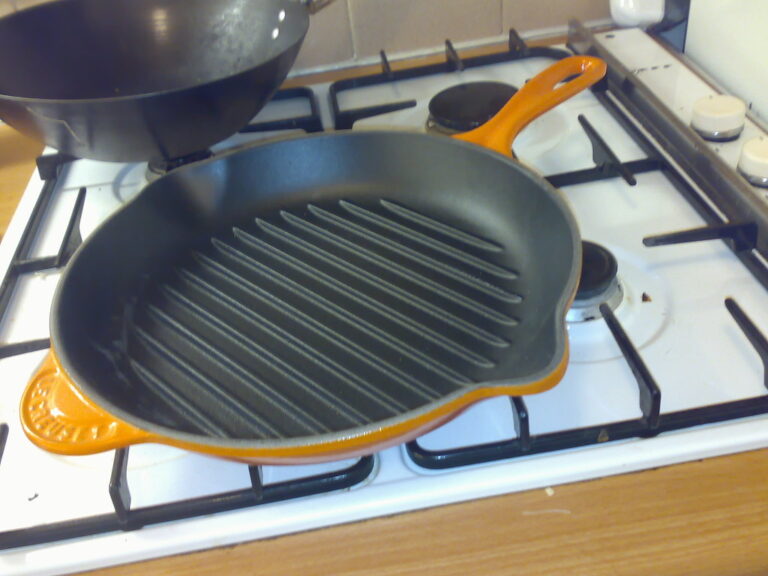I’ve always wondered if aluminum pans can be used on induction cooktops. So, I decided to do some research and find out the answer once and for all.
In this article, we’ll dive into the science behind induction cooking and explore whether aluminum pans are compatible with induction technology. We’ll also provide tips on how to test if your aluminum pans work on induction and share some insights on using them effectively.
Let’s settle the debate once and for all!
Key Takeaways
- Aluminum pans are not compatible with induction stoves.
- Induction cooktops require cookware made of stainless steel or cast iron.
- Enamel and ceramic cookware can be used on induction stoves.
- It is important to test aluminum pans for induction compatibility using a magnet before using them on an induction cooktop.
The Science Behind Induction Cooking
The science behind induction cooking is based on the principle of electromagnetic fields. It’s fascinating how this technology works to cook food efficiently and safely.
Induction stoves use a series of copper coils beneath the glass cooktop that generate an alternating magnetic field when electricity passes through them. This magnetic field induces an electric current in the cookware, generating heat directly in the pot or pan.
One of the advantages of induction cooking is its safety features. Since only the cookware itself gets hot, there is less risk of burns compared to traditional gas or electric stoves.
Additionally, induction cooking offers precise control over temperature settings and rapid heat transfer, allowing for faster cooking times and energy efficiency.
Understanding Induction Cooktops
When it comes to choosing between induction and gas stoves, there are several important factors to consider.
In this discussion, we will explore the key differences between these two types of cooktops and help you make an informed decision.
Additionally, we will provide a cookware compatibility guide for induction cooking and highlight the numerous benefits that come with using induction technology in your kitchen.
Induction Vs Gas Stoves
Did you know that induction stoves are more energy efficient than gas stoves?
When it comes to cooking, I always opt for an induction stove over a gas stove.
Not only do they heat up faster and provide precise temperature control, but they also consume less energy.
Unlike gas stoves, which waste a significant amount of heat energy by heating the air around the pot, induction stoves transfer heat directly to the cookware through electromagnetic currents.
This means that there is minimal energy loss during the cooking process.
Additionally, induction stoves are considered safer than electric or gas stoves because they don’t have open flames or hot surfaces.
This reduces the risk of accidental burns or fires in the kitchen.
Overall, I find induction stoves to be a more efficient and safer option for cooking.
Cookware Compatibility Guide
If you’re using stainless steel, cast iron, or certain types of cookware, it should work well with an induction stove. However, not all materials are compatible with this type of cooking surface. It’s important to understand what types of cookware can be used on induction stoves to avoid any damage or inefficiency in your cooking process.
To help you navigate through the various options, here is a handy guide outlining the compatibility of different cookware materials with induction stovetops:
| Compatible Cookware | Non-Compatible Cookware |
|---|---|
| Stainless Steel | Aluminum |
| Cast Iron | Copper |
| Enamel | Glass |
| Ceramic | Non-magnetic metals |
When it comes to nonstick coatings, there are several types available in the market. These include ceramic nonstick coatings, PTFE (polytetrafluoroethylene) nonstick coatings like Teflon, and silicone-based nonstick coatings. Each type requires specific care and maintenance to ensure their longevity and performance.
Benefits of Induction Cooking
To fully experience the benefits of induction cooking, you’ll need to ensure your cookware is compatible with this type of stove. Induction cooking offers several advantages that make it a popular choice for many households. Here are four key benefits:
- Safety: Unlike traditional gas or electric stoves, induction cooktops remain cool to the touch, reducing the risk of burns or accidental fires. This feature is especially important if you have young children in your home.
- Energy Efficiency: Induction cooking is highly energy efficient because it heats up quickly and transfers heat directly to the cookware. This means less wasted energy and faster cooking times.
- Precise Temperature Control: Induction cooktops allow for precise temperature adjustments, giving you more control over your cooking process and ensuring consistent results.
- Easy Cleanup: Since induction cooktops only heat the cookware and not the surrounding surface, spills are less likely to burn onto the stove, making cleanup a breeze.
Overall, induction cooking offers not only safety benefits but also energy efficiency and convenient features that can enhance your culinary experience.
Benefits and Drawbacks of Aluminum Pans
You’ll find that aluminum pans have both benefits and drawbacks when it comes to cooking on induction stoves.
I tested out a few aluminum pans myself and discovered some interesting things.
One of the main benefits of using aluminum pans on induction stoves is their excellent heat conductivity. Aluminum heats up quickly and evenly, which makes for efficient cooking. It also cools down fast, allowing for precise temperature control.
However, there are a couple of drawbacks to consider as well. Aluminum is not as durable as other materials like stainless steel, so it may dent or warp over time. Additionally, acidic foods can react with the metal, causing a metallic taste in your dishes.
Despite these drawbacks, I still enjoy cooking with aluminum pans on my induction stove due to their excellent heat distribution and affordability.
Can Aluminum Pans Generate Enough Heat for Induction
When using aluminum pans, you may wonder if they can generate enough heat for induction cooking. I decided to put this question to the test and see if my trusty aluminum pans were compatible with induction. Here’s what I found:
- Aluminum is not inherently magnetic, which means it doesn’t work well with induction cooktops that rely on magnetic fields to generate heat.
- Some aluminum pans have a layer of stainless steel or copper at the base, making them compatible with induction cooking.
- If your aluminum pan doesn’t have a magnetic base, you can use an induction interface disk to allow it to work on an induction cooktop.
- Keep in mind that even with these solutions, aluminum pans may not heat as evenly or efficiently as other materials like stainless steel or cast iron.
Exploring Induction-Compatible Aluminum Pans
I’ve always wondered if aluminum pans are effective for induction cooking.
In this discussion, we’ll dive into the topic of aluminum induction pans and explore their effectiveness in generating enough heat for induction cooking.
We’ll also uncover the benefits that come with using aluminum pans in the kitchen.
Aluminum Induction Pans Effective
Aluminum pans aren’t typically effective on induction cooktops. However, I have discovered that there are specially designed aluminum induction pans that can work efficiently with these types of stovetops. Here’s what I’ve learned about their effectiveness:
- Durability: Induction-compatible aluminum pans are made with a thicker base to ensure durability and prevent warping or bending over time.
- Heat distribution: These pans have a layered construction that allows for even heat distribution, ensuring that your food cooks uniformly.
- Energy efficiency: Aluminum is known for its excellent heat conductivity, which means it heats up quickly and retains heat efficiently, resulting in shorter cooking times and lower energy consumption.
- Cleaning: Cleaning aluminum induction pans is a breeze! They often come with non-stick coatings or ceramic surfaces that make them easy to clean by hand or in the dishwasher.
Overall, while traditional aluminum pans may not be suitable for induction cooktops, specially designed aluminum induction pans offer improved durability, efficient heat distribution, energy-saving benefits, and easy cleaning options.
Benefits of Aluminum Pans
To enjoy the benefits of aluminum pans, you’ll find that they are versatile and conduct heat efficiently. I’ve been using aluminum pans for years and I can’t imagine cooking without them. They’re lightweight, making it easy to handle in the kitchen. Whether I’m searing a steak or simmering a sauce, my aluminum pan heats up quickly and distributes heat evenly across the surface. This means that my food cooks more evenly and I don’t have to worry about hot spots. Additionally, aluminum pans are incredibly versatile. They can be used on any type of stovetop – gas, electric, or induction – which makes them perfect for any kitchen setup. Overall, the benefits and versatility of aluminum pans make them a must-have in any kitchen.
| Benefits | Versatility |
|---|---|
| Lightweight | Can be used on any stovetop |
| Efficient heat conductor | Suitable for all types of cooking |
| Even heat distribution | Easy to clean |
| Versatile cooking options | Durable and long-lasting |
| Affordable price range | Non-reactive with acidic ingredients |
How to Test if Your Aluminum Pans Work on Induction
You can easily test if your aluminum pans work on induction by using a magnet. Here’s how you can do it:
- Grab a magnet: Start by finding a magnet that you have lying around the house.
- Place the pan on the stove: Put your aluminum pan on the induction stove and turn it on.
- Bring the magnet close: Take the magnet and bring it close to the bottom of the pan without touching it.
- Observe the reaction: If your aluminum pan is compatible with induction, you will notice that the magnet sticks to it.
Testing your aluminum pans for compatibility with induction is crucial because not all pans are suitable for this type of cooking technology. By following these simple steps, you can determine whether or not your aluminum pans will work effectively on an induction stove.
Tips for Using Aluminum Pans on Induction Cooktops
Now that we know how to test if aluminum pans work on induction cooktops, let’s talk about some tips for using them effectively.
When it comes to choosing between aluminum and stainless steel pans for induction cooking, both have their pros and cons. Stainless steel pans are known for their durability and even heat distribution, while aluminum pans are lightweight and heat up quickly.
However, if you prefer using aluminum pans on your induction cooktop, there are a few best practices to keep in mind.
Firstly, make sure to preheat the pan before adding any ingredients to ensure even cooking.
Secondly, avoid using high heat settings as this can cause the pan to warp or discolor.
Lastly, when cleaning your aluminum pan, use mild dish soap and a soft sponge to prevent scratching the surface.
Conclusion
In conclusion, I’ve found that aluminum pans can work on induction cooktops, but with some limitations. While aluminum isn’t inherently magnetic and doesn’t generate heat through induction, there are induction-compatible aluminum pans available. These pans have a magnetic base for heat transfer through induction.
However, not all aluminum pans will work on induction, so testing them beforehand is important.
Overall, using the right aluminum pans on induction can be convenient and efficient.




